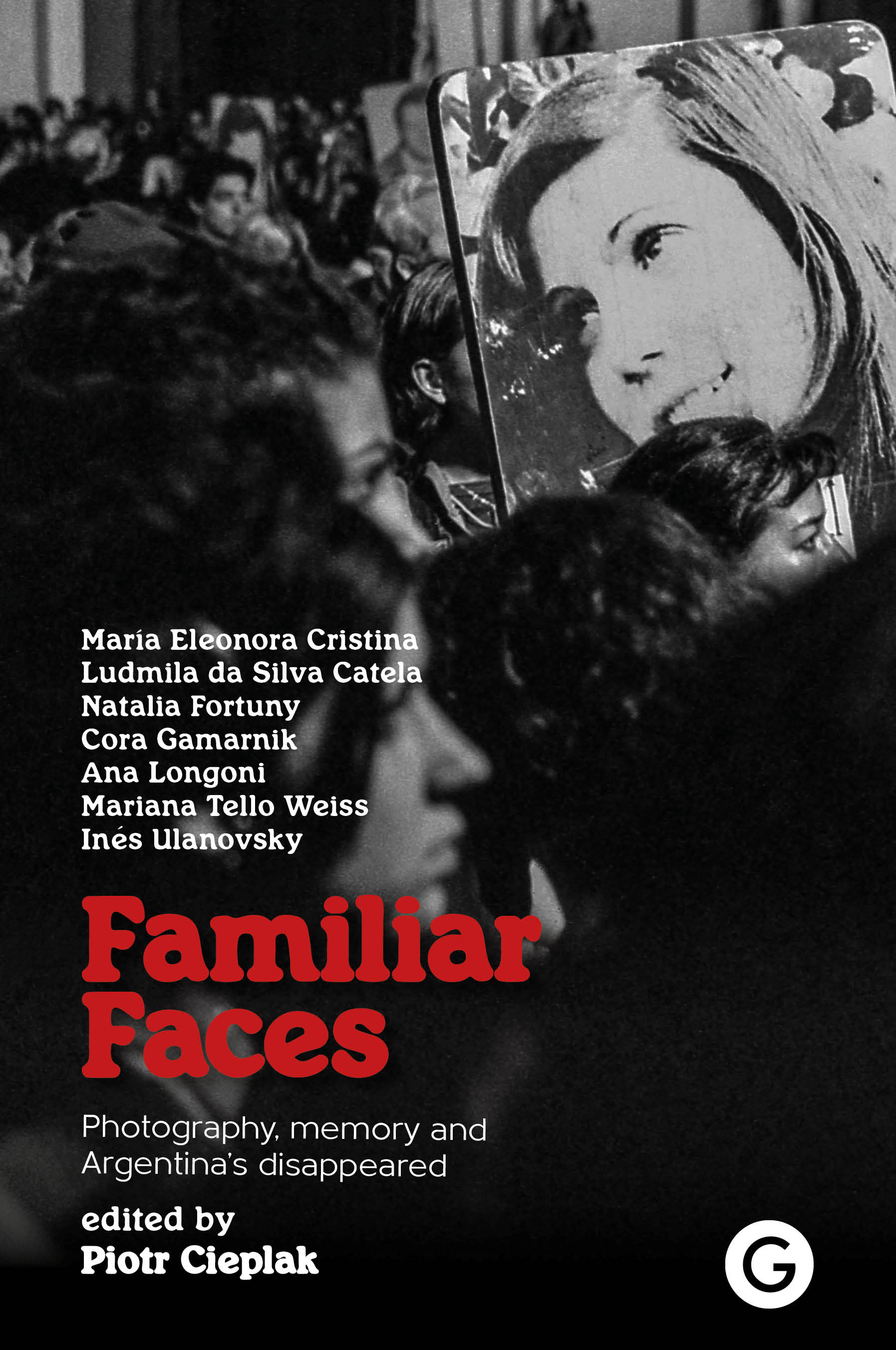Familiar Faces
Photography, Memory, and Argentina's Disappeared
Piotr Cieplak
Publication
Familiar Faces offers a diverse, theoretically rich, and empirically informed exploration of photography in Argentina's memorial, political, and artistic landscape.
During the country's most recent civic-military dictatorship (1976–1983), 30,000 people were disappeared or killed by the state. Over the decades, vernacular and professional photographs have been central to the Argentine struggle for justice. They were used not only to protest the disappearances under the dictatorship and to denounce the authorities, but also as tools of political and social activism, and for remembering the disappeared.
With contributions from leading Argentina-based anthropologists, ethnographers, curators, art scholars, media researchers, and photographers, Familiar Faces moves beyond the traditional considerations of representation, focusing instead on the ways in which photography is continuously reimagined as a tool of memory, mourning, and political and judicial activism. In so doing, it considers the diverse uses of press photography; artistic practice; photographs of the disappeared in domestic rituals; photographs of the inmates of torture centers; the reclamation of images taken by the dictatorial state for memorial and activist purposes.
Written and published at a crucial moment in Argentine memory politics, Familiar Faces offers a geographically and formally diverse selection of case studies, with international as well as regional resonance. While firmly rooted in this national context, the book contributes to wider, global debates about the increasingly pervasive role of the photographic image in relation to state-sponsored, large-scale violence.
From the very best writers on photography in Argentina, and brimming with insightful reflections, this elegant collection will doubtless generate and guide further discussions on the endlessly fascinating role of photography in the post-dictatorship period.
Familiar Faces is a stunning collection of essays and interviews about the role of photography in remembering, protesting and reimagining the forced disappearances in Argentina under the military dictatorship. From family photographs of the disappeared to press images of the Mothers of the Plaza de Mayo, from artistic reworkings of family memories to insights into institutional memory work in Argentina, the collection assembles a vast range of perspectives and forms of photography in an imaginative, nuanced and generative manner. The volume is a huge achievement and makes an exciting contribution to the study of photography, protest and memorialization.
